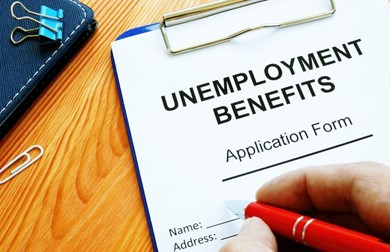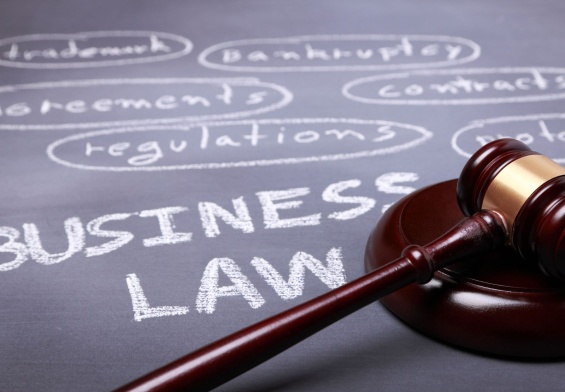What Counts as Wrongful Termination in NJ?
Wrongful termination happens when an employer illegally fires an employee in violation of law, contract, or public policy.
Examples of wrongful termination in New Jersey:
- Discrimination: Fired due to race, gender, age, disability, pregnancy, or other protected traits.
- Retaliation: Dismissed for reporting harassment, unsafe conditions, or filing complaints.
- Public Policy Violation: Terminated for serving jury duty, refusing illegal acts, or taking family leave.
- Breach of Contract: Fired in a way that violates a written contract or company policy.
What to do next:
- Document the timeline of your firing.
- File a complaint with EEOC, OSHA, or NJ DOL, depending on the issue.
- Consult an employment lawyer in NJ for legal options and deadlines.
Why NJ Employees Need to Know Their Rights
Like many states, New Jersey follows the at-will employment rule. It lets employers dismiss workers whenever they want, with or without explanation. But, that doesn’t give them carte blanche to fire someone for discriminatory or retaliatory reasons.
This is where many workers turn to guidance on how an employment lawyer in NJ handles wrongful termination. A New Jersey wrongful termination attorney can explain whether a firing was legal, guide you in filing complaints, and pursue remedies if your termination was unlawful.
Wrongful Termination Explained: How NJ Workers Are Protected
Wrongful termination means an employee was fired in a way that breaks the law or violates an agreement. Common reasons include discrimination, retaliation, violation of public policy, or breach of contract.
A NJ wrongful dismissal lawyer can clarify whether your case invokes legal protections. They could be federal, like Title VII or state-specific, like NJ’s LAD and CEPA. You want someone local to NJ, because it adds state level protections that go beyond federal law. To prepare, learn what evidence you need for a wrongful termination case.
At-Will Employment in New Jersey: What It Means for You
Yes, New Jersey is an at-will employment state. Employers may end employment without notice, but not if the reason falls into unlawful categories. Exceptions include:
- Discrimination based on protected characteristics.
- Retaliation for filing complaints or reporting misconduct.
- Violations of public policy, such as firing someone for jury duty.
- Breach of contract, either written or implied.
If you suspect your dismissal was an unlawful termination in NJ, an attorney can help determine whether you have a viable claim.
Common Ways NJ Employers Wrongfully Terminate Workers
Fired Due to Discrimination: When Bias Becomes Illegal
Federal law protects workers against firing based on race, religion, sex, age, disability, or national origin. New Jersey law goes further, covering pregnancy, gender identity, sexual orientation, and marital status.
A New Jersey employment lawyer can review whether your dismissal was tied to these categories or if it was an unlawful firing under NJ law.
Retaliation and Whistleblowing: Standing Up Without Losing Your Job
Retaliation occurs when an employer punishes a worker for protected activities. Those could mean reporting harassment or unsafe conditions, filing discrimination complaints, or requesting accommodations.
CEPA, New Jersey’s whistleblower law, protects employees who report or refuse to take part in illegal practices. If your firing followed one of these actions, an employment lawyer in NJ can help you build a retaliation case.
Violations of Public Policy: Protecting Your Legal Rights
Public policy protects employees from being terminated for fulfilling civic duties or exercising rights. Examples include serving jury duty, refusing to falsify records, or taking family leave.
Breach of Contract: When Employers Break Their Own Rules
If your employer made contractual promises about job security or followed policies that create an implied contract, breaking those terms may be wrongful. An NJ employment attorney can review contracts, handbooks, or collective bargaining agreements for violations.
Real-World Examples of Wrongful Termination in NJ
Examples of wrongful termination include:
- Firing an employee after announcing pregnancy.
- Terminating someone for reporting unsafe conditions.
- Dismissing a worker for requesting disability accommodations.
- Letting go of an employee who filed a discrimination complaint.
- Firing for taking New Jersey Family Leave or earned sick leave.
- Retaliating after a worker asked about salaries to check for pay discrimination.
- Terminating a worker for refusing to falsify company records.
- Firing someone who testified as a witness in a workplace case.
- Dismissing a worker who reported wage theft or misclassification.
- Terminating a veteran for taking protected military leave.
If any of these situations sound familiar, a New Jersey wrongful termination attorney can review your case and explain whether you can sue for wrongful termination.
What Is Not Wrongful Termination? Understanding the Difference
Some firings are legal, even if frustrating. Employers can dismiss employees for:
- Company restructuring or layoffs.
- Documented poor performance.
- Policy violations unrelated to protected rights.
- Ending fixed-term contracts.
An employment law firm in NJ can help you differentiate between actual wrongful dismissal and mere unfair treatment.
Step-by-Step Guide: What to Do If You’re Wrongfully Terminated in NJ
Step 1: Build a Timeline of What Happened
Document events leading up to your termination. Include dates of complaints, disciplinary actions, and conversations. Without a clear timeline, your employment lawyer in NJ will have a harder time filling in the blanks.
Step 2: Collect Documents, Emails, and Witness Accounts
Keep copies of termination letters, emails, pay stubs, and performance reviews. Ask coworkers to provide statements if they saw retaliation. Your unlawful termination in NJ claim is built on evidence like this.
Step 3: Identify If Your Firing Breaks Employment Law
Was your firing connected to discrimination, retaliation, public policy, or breach of contract? Understanding this helps determine where to file and whether to call an employment lawyer in NJ or beyond.
Step 4: File a Complaint with the EEOC if Discrimination Applies
For discrimination claims, file a charge with the EEOC within the deadline. A New Jersey wrongful termination attorney can ensure your filing is complete.
Step 5: Report Unsafe Conditions or Safety Retaliation to OSHA
If retaliation is linked to safety violations, OSHA handles whistleblower complaints. Deadlines may be as short as 30 days.
Step 6: File State-Level Complaints with the NJ Department of Labor
NJ DOL oversees wage, leave, and retaliation complaints. Filing with state authorities ensures your case is treated as an unlawful firing under NJ law.
Step 7: Speak With an Employment Lawyer NJ About Your Options
This step is crucial. An attorney can check your case, explain your rights under LAD and CEPA, and answer what to ask an employment attorney before moving forward. Many NJ wrongful dismissal lawyers also negotiate settlements.
Step 8: Protect Your Income and Benefits After Job Loss
Apply for unemployment insurance if eligible. Look into COBRA for health coverage. An employment lawyer NJ can explain how benefits interact with wrongful termination claims.
Step 9: Move Quickly to Avoid Missing Deadlines
Deadlines are strict. EEOC charges must be filed within 180 days, while OSHA deadlines can be shorter. A New Jersey employment lawyer will remind you of these timelines.
Step 10: Consider Mediation or Settlement With Legal Support
Not every case goes to court. An NJ wrongful dismissal lawyer can negotiate severance, back pay, or damages in mediation, saving time and cost.
Employee Rights After a Job Loss in New Jersey
Even after termination, employees keep certain rights.
- COBRA continuation of health insurance.
- Unemployment insurance if fired without misconduct.
- Federal protections against discrimination in future employment.
- USERRA rights for veterans.
- NJ-specific rights under LAD and CEPA.
An employment lawyer in NJ can ensure you take advantage of these rights.
Why Consulting an Employment Lawyer NJ Can Make the Difference
Employment law is complex, with federal, state, and contractual obligations overlapping. A New Jersey wrongful termination attorney understands both national standards and NJ-specific protections. Without that knowledge, they might overlook certain angles.
Whether your case involves discrimination, retaliation, or breach of contract, an employment lawyer NJ can pursue remedies such as reinstatement, back pay, or damages. They can also negotiate settlements that keep you out of court.
Wrongful vs. Legal Termination: How to Tell the Difference
| Illegal / Wrongful Termination | Why It’s Unlawful | Legal / Lawful Termination | Why It’s Allowed |
| Firing due to pregnancy or other protected traits | Violates discrimination laws | Layoff during restructuring | Business-driven, non-discriminatory |
| Termination for reporting unsafe conditions | Protected whistleblowing | Firing for repeated policy violations | Consistent enforcement |
| Dismissing someone after requesting accommodations | Retaliation | Performance-based dismissal | Documented performance issues |
| Letting go after filing a complaint | Protected retaliation | Eliminating a role due to budget | Business necessity |
| Termination for refusing illegal activity | Violation of public policy | End of fixed-term contract | Aligned with contract terms |
| Firing for taking NJ family or sick leave | Protected leave rights | At-will termination with no unlawful motive | Permitted if no law violated |
Where NJ Employees Can File Complaints or Get Help
| Issue | Agency / Path | What to Know |
| Discrimination or harassment | EEOC | File within 180 days; required before federal lawsuit. |
| Safety-related retaliation | OSHA | Handles whistleblower complaints; strict deadlines. |
| Wage, hour, or leave issues | NJ DOL | Oversees state-specific complaints. |
| Benefits and unemployment | U.S. DOL | Manages COBRA and unemployment programs. |
| Whistleblowing in NJ | CEPA | Broad protections enforced in NJ courts. |
Key Takeaways for NJ Employees Facing Wrongful Termination
- Wrongful termination occurs when employers fire employees for unlawful reasons such as discrimination, retaliation, public policy violations, or contract breaches.
- New Jersey expands protections beyond federal law, making local expertise valuable.
- Employees should document timelines, save evidence, and file complaints with EEOC, OSHA, or NJ DOL as appropriate.
- Consulting an employment lawyer NJ early ensures claims are filed on time and remedies are pursued effectively.
- Remedies may include reinstatement, back pay, damages, or negotiated settlements.
- COBRA and unemployment benefits can help workers maintain stability after termination.
- Not all firings are wrongful; employers may act for business reasons if no protected rights are violated.
- A New Jersey employment lawyer can identify the strongest legal theories under LAD, CEPA, or federal law.
- Acting quickly matters; missed deadlines can bar claims.
- Working with an employment law firm in NJ increases your chance of success, whether through settlement or litigation.
Protect Your Career With an Employment Lawyer NJ
Wrongful termination is an unlawful act that violates discrimination protections, whistleblower laws, or contractual promises. Federal rules set the baseline, but New Jersey adds some of the strongest protections in the country.
If you suspect your firing was unlawful, document events, file complaints with the right agencies, and seek advice from an experienced employment lawyer in NJ. You can also explore resources if you’re having issues at work or think you might be fired. Acting quickly can preserve your benefits, protect your rights, and help you recover fair compensation.
Resources
https://www.dol.gov/general/topic/termination
https://www.usa.gov/wrongful-termination
https://www.eeoc.gov/retaliation
https://www.nj.gov/labor/myworkrights/worker-protections/retaliation_protections/




